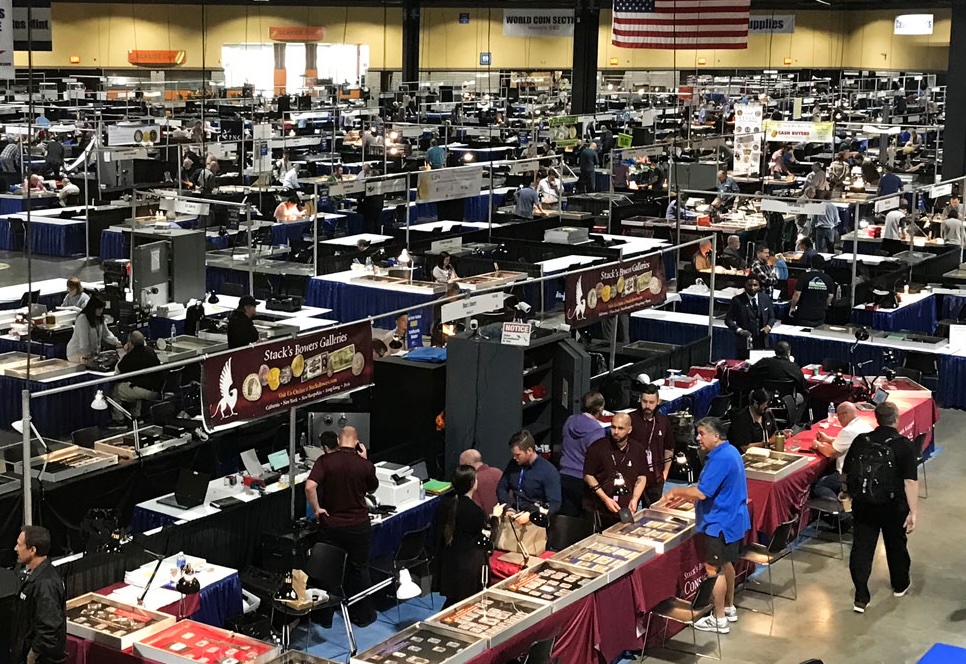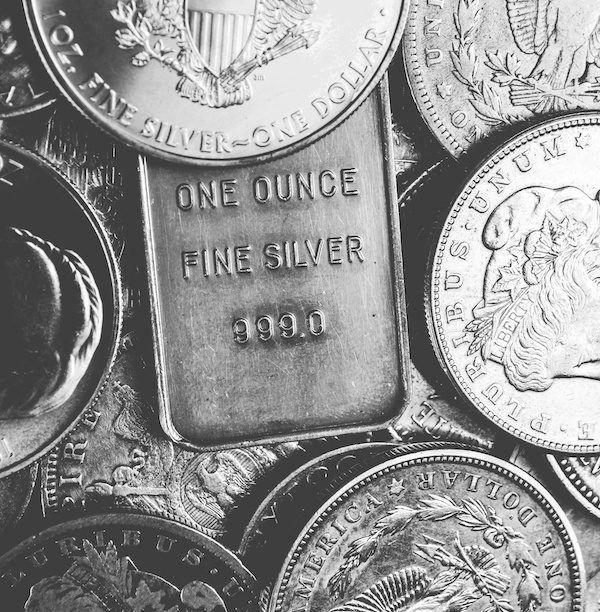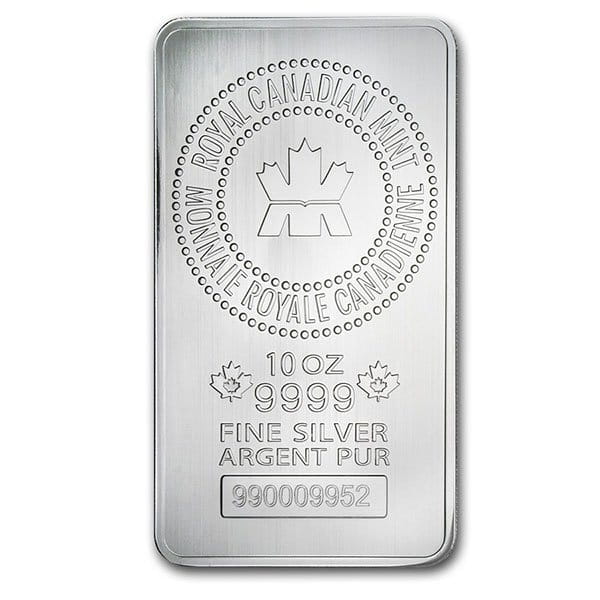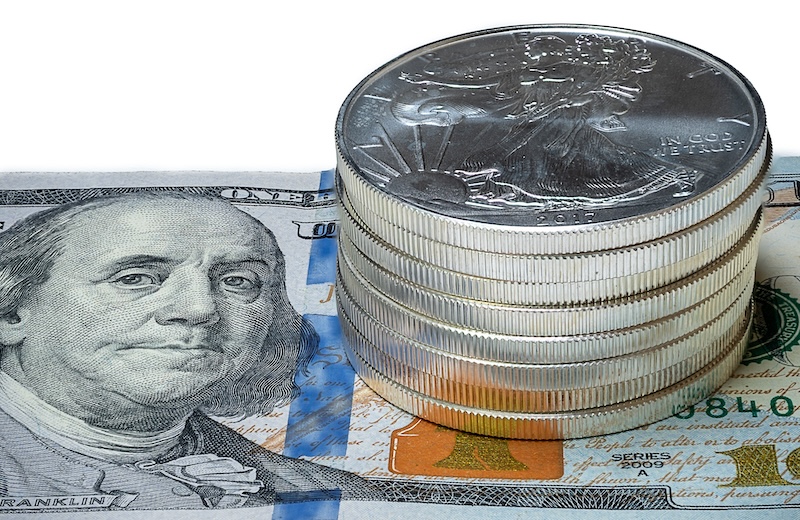Casino gaming tokens have long served as functional currency within casinos and treasured souvenirs for visitors. Among the most interesting and collectible are those that contain precious metals, primarily silver, but occasionally gold. These gaming tokens, particularly the popular Silver Strike, offer a fascinating intersection of Las Vegas history, silver bullion investment, and the gaming industry’s evolution.
What Are Silver Strikes?
Silver Strikes are a specific type of limited-edition casino token introduced in the early 1990s. Unlike traditional plastic or base-metal slot tokens, Silver Strikes contain a center core of .999 fine silver encased in a brass ring.
They were dispensed as jackpot prizes from special slot machines designed to promote player engagement with a tangible reward of lasting value.
Manufactured by companies like the Sunshine Mint and Silver State Mint, these tokens were typically issued in denominations of $10 and became instantly recognizable. Most contained design themes reflecting the issuing casino or regional cultural landmarks.
Historical Context and Popularity
The concept of casino tokens dates back over a century. Still, the incorporation of precious metals gained traction during the 1980s and 1990s when Las Vegas and other casino hubs sought new ways to attract and reward players. Silver content added both monetary value and collectibility to these tokens.
Casinos such as The Mirage, Luxor, Fremont Street, Circus Circus, and Four Queens in downtown Las Vegas were among the many to offer Silver Strikes. The machines became attractions in their own right, drawing collectors eager to acquire new designs or limited-edition runs.
Design and Themes
Silver Strikes vary widely in design. Some tokens feature:
- Casino logos or building facades
- Famous Las Vegas shows and entertainers
- Historical figures
- City skylines and landmarks
- Anniversary or grand opening commemoratives
Because many of the casinos that issued them have since closed, the tokens serve as nostalgic keepsakes that preserve a part of Las Vegas’s ever-evolving identity.
Denominations and Precious Metal Content
While the most common Silver Strikes are $10 tokens containing approximately 0.6 troy ounces of .999 fine silver, other denominations and formats were issued as promotional or high-roller exclusives.
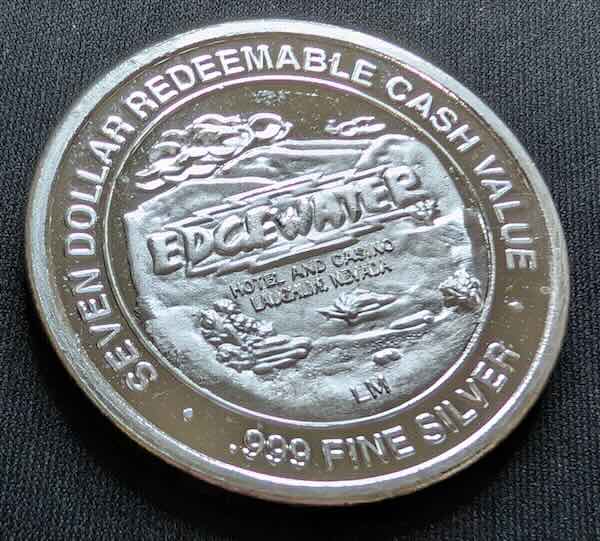
Silver Strike Gaming Token Denominations
| Denomination | Silver Content (troy oz) | Melt Value | Notes |
|---|---|---|---|
| $7 Silver Strike | 0.60 ozt | $49.75 | Only silver without the brass ring |
| $10 Silver Strike | 0.60 ozt | $49.75 | Most common; brass ring with silver core |
| $20 Silver Strike | .75 ozt | $62.18 | Less common; often limited-edition issues |
| $40 Silver Strike | 1.40 ozt | $116.08 | Full-size silver planchet, no brass ring |
| $200 Silver Strike | 12.0 ozt (1 troy pound) | $994.95 | Very rare; full silver or partially gold-plated |
| $300 Silver Strikes | 6.00–12.00 ozt | $497.48 to $994.95 | Occasionally included selective gold inlay |
Note: Silver weights may vary slightly depending on mint and design.
Gold Gaming Tokens
Gold gaming tokens are considerably rarer than their silver counterparts. High-stakes promotional events at luxury casinos occasionally included gold-plated tokens or full 1 oz gold medallions as tournament prizes or VIP gifts.
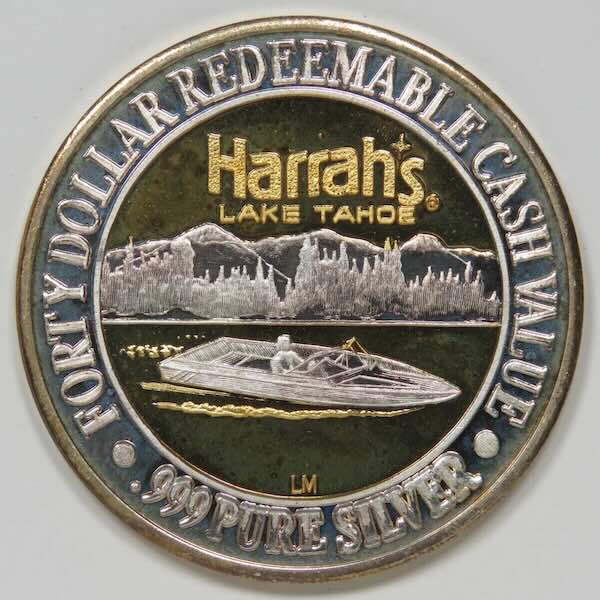
While these tokens were not dispensed from machines like Silver Strikes, they occupy a similar space in casino collectibles with intrinsic precious metal value.
Some examples include:
- 1 oz Gold Commemorative Medals issued for major poker tournaments
- Casino-branded rounds produced by private mints like Engelhard or Sunshine
- Limited-issue $1,000 Gold Tokens gifted to high-rollers or executive partners
Market and Collectibility
Today, Silver Strikes occupy a unique position at the intersection of the bullion and numismatic markets. Several key factors drive their value and appeal to both investors and collectors.
Many Silver Strikes were produced in limited quantities, tied to special casino events or specific time periods. Tokens from casinos that have since closed, or those featuring elaborate or nostalgic artwork, tend to command higher interest from collectors.
Tokens from early series runs, now-defunct gaming properties, or iconic Las Vegas landmarks are increasingly sought after as physical artifacts of casino and regional history and can command higher premiums.
Each Silver Strike contains a known amount of .999 fine silver, and their market value often rises or falls in tandem with the spot silver price.
Condition also plays a significant role in determining value. Uncirculated Silver Strikes, particularly those still sealed in their original plastic capsules, often sell at a premium.
Collectors typically group their Silver Strikes by thematic categories. Some focus exclusively on Las Vegas casinos, while others pursue tokens from discontinued properties, anniversary releases, or those reflecting key moments in Nevada’s gaming industry.
Where to Find Silver Strikes and Learn More
Silver Strikes and other precious metal gaming tokens are tangible assets that bridge entertainment, collectibility, and bullion investment and include a flash of Las Vegas nostalgia. While they are no longer as widely issued, the collecting community remains vibrant. Dealers, eBay, coin shows, and specialized forums are common marketplaces. Some casinos, like Four Queens, still occasionally offer Silver Strike machines for nostalgic appeal.

